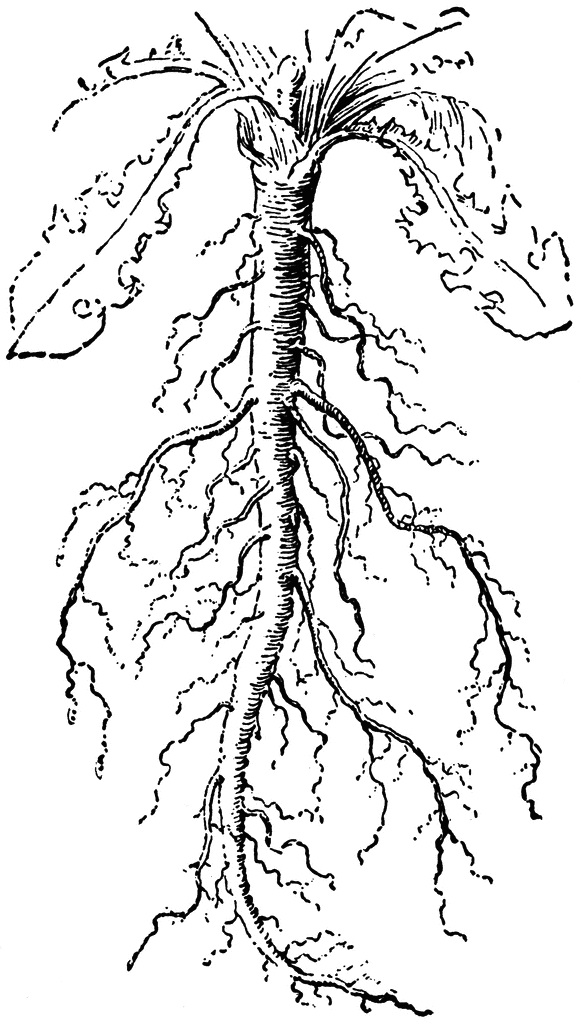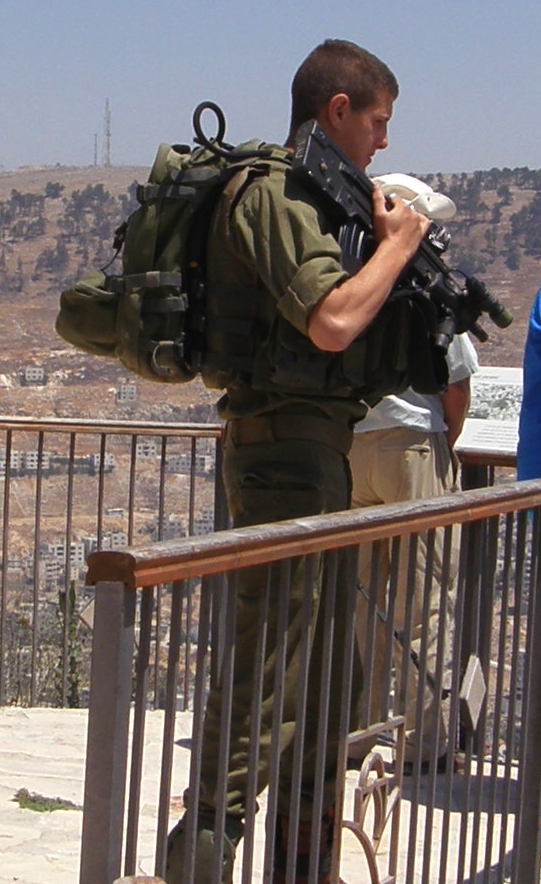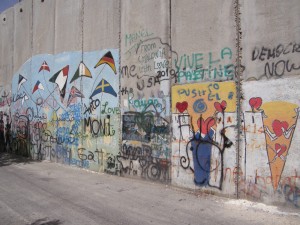====================
A sermon offered on Seventh Sunday after Pentecost (Proper 10B, Track 1, RCL), July 12, 2015, to the people of St. Paul’s Episcopal Church, Medina, Ohio, where Fr. Funston is rector.
(The lessons for the day are 2 Samuel 6:1-19; Psalm 24; Ephesians 1:3-14; and Mark 6:14-29. These lessons may be found at The Lectionary Page. Note: The Revised Common Lectionary provides that the first lesson is 2 Samuel 6:1-5,12b-19.)
====================
Why do people in church seem like cheerful, brainless tourists on a packaged tour of the Absolute? On the whole, I do not find Christians, outside of the catacombs, sufficiently sensible of conditions. Does anyone have the foggiest idea what sort of power we so blithely invoke? Or, as I suspect, does no one believe a word of it? The churches are children playing on the floor with their chemistry sets, mixing up a batch of TNT to kill a Sunday morning. It is madness to wear ladies’ straw hats and velvet hats to church; we should all be wearing crash helmets. Ushers should issue life preservers and signal flares; they should lash us to our pews. For the sleeping god may wake someday and take offense, or the waking god may draw us out to where we can never return. (Annie Dillard, Teaching a Stone to Talk: Expeditions and Encounters [New York: Harper & Row, 1982], pp. 40-41.)
I wonder if Ms. Dillard might not have had in mind the episode recounted today in our reading from the Second Book of Samuel. Confession: The Lectionary edited out the verse that describe the death of the priest Uzzah and the circumstances and causes thereof. I put them back in because they explain the sudden reluctance of David to take the Ark of the Covenant into his city, and his three-month delay in doing so. With Uzzah’s death David, as the writer of Second Samuel tells us, got a notion of “what sort of power we so blithely invoke,” of what sort of power he was bringing into Jerusalem, and it frightened him.
After all, what had Uzzah done. Nothing disrespectful of God, that’s for sure. If anything, he saved the Almighty the indignity of the Ark tumbling out of the ox cart and falling to the ground. All he had done was reach out to steady it when it was jostled by the oxen; he was doing only what comes naturally when one is moving a large, heavy object over rough terrain. And for this, for touching the Ark with the most innocent and benign of intentions, he was stricken dead. At first, David was angry with God about that; apparently he cursed up a storm because the place gets renamed “Perez-uzzah” which means “outburst about Uzzah” – could be God’s outburst that killed Uzzah, more likely it’s David’s outburst of anger after Uzzah is dead. Once he vents, however, David becomes frightened; we are told, “David was afraid of the Lord that day; he said, ‘How can the ark of the Lord come into my care?'” So, he leaves the Ark right there in the care of a foreigner, Obed-edom the Gittite, for three months. David has realized that he may need a crash helmet when dealing with the power of the Almighty.
And then there’s John the Baptizer. John knew all too well the Power he’s been dealing with; he’d talked directly with God (“The one who sent me to baptize with water said to me,” he claimed – Jn 1:33) and John spoke to earthly power on God’s behalf. He said to the crowds that came out to him, to the scribes and the Pharisee, the priests and the Sadducees, to all who came to him at the River Jordan, “You brood of vipers! Who warned you to flee from the wrath to come? Bear fruits worthy of repentance. Do not begin to say to yourselves, ‘We have Abraham as our ancestor;’ for I tell you, God is able from these stones to raise up children to Abraham. Even now the ax is lying at the root of the trees; every tree therefore that does not bear good fruit is cut down and thrown into the fire.” (Lk 3:7-9) John knew there was danger, terrible danger when one becomes involved with Almighty God. It was the writer of the Letter to the Hebrews who said it, but John knew well, “It is a fearful thing to fall into the hands of the living God.” (Heb 10:31) Because even if the power of God doesn’t kill you, the ministry demanded of you by God may well put you in harm’s way . . . and that, in the end, is what happened with John.
Speaking truth to power, John publicly denounced Herod Antipas for his sinful, adulterous relationship with his half-brother Philip’s wife Herodias, who also happened to be Antipas’s niece. For that public reproof, John was arrested and held for a time in prison; the Gospel lesson tells us that Herod protected John after his arrest because he feared him! – Even Herod Antipas felt the danger of involvement with the Almighty at second hand, the danger of dealing with God’s anointed prophet. But in the end, tricked by his own foolish behavior, Antipas must order John beheaded; for John the ax is laid not at the foot of the tree, but at the base of his neck. As Ms. Dillard might put it, “The waking god drew John out to where he could never return.”
We, the Episcopal Church, take this dangerous prophetic step out to where we might never return every time we make a statement or take an action and proclaim to the world, “We do this because we are called to do so by our Lord and our God.” I do it every time I step into this pulpit and dare to preach a sermon. You do it every time you take a stand on an issue or behave in a particular way and say, “I do this because I am a Christian, because I am an Episcopalian.” Our church does it when it meets in deliberative council, in vestry meetings, in diocesan conventions, or as we have just done in our triennial General Convention; we do it when we issue public statements on important issues of the day.
We feel like we have done it now in the aftermath of our 78th General Convention because, for example, we have taken the bold step of opening our marriage liturgies to same-sex couples. However, I would suggest to you that that was not a very prophetic step after all. We had already, several years ago, declared that gay and lesbian persons are beloved children of God entitled to the full ministry of and to full inclusion within the body of the faithful. We underscored that a dozen years ago when we approved the election and consecration of the first openly gay bishop, Gene Robinson of New Hampshire. When we declared last week that same-sex couples could marry in the church, we were only continuing down a path we had already been walking, a path which (frankly) the United Church of Christ, the Presbyterian Church in the USA, and the United States Supreme Court had just walked before us. It’s easy to be prophetic when others have already done so before you.
We feel like we have taken a prophetic stance because 1,500 bishops, deputies, and other Episcopalians marched the streets of Salt Lake City to protest against gun violence and to call for rational handgun licensing laws and for background checks on all gun sales including gun show and private transactions. We feel like we have done so because, a few days after that protest march, the General Convention passed a resolution making that same call; but in all honesty it’s a call we have made before. We have been on record as a church in support of reasonable regulation of gun manufacture, sale, and ownership for nearly 40 years; we have passed resolution after resolution urging registration, licensing, and insuring of handguns, as well as the banning of civilian sale and ownership of automatic and semi-automatic weapons since at least 1976. And we have not been alone among the churches in doing so. It’s not particularly original or prophetic to do and say again that which you and many others have done and said many, many times.
We feel like we have been prophetic in the House of Bishop’s election of Michael B. Curry of North Carolina to be our Presiding Bishop, our first black Presiding Bishop! But, folks, we have had black bishops in the Episcopal Church for over 140 years since the consecration of James Theodore Holly to be Bishop of Haiti in 1874. Neither God nor the world would be out of line in telling us that Bishop Curry’s election is not particularly prophetic and asking, “What took you so long?”
It’s not that these are not important and vital issues; they are. It’s not that our voice, added to so many others, is not worth raising about these issues; it is. It’s not that we should not be taking a stand on these matters; we should. We should and we have and we will continue to do so, but we are not being particularly prophetic when we do so. We are merely doing what comes naturally moving a large, heavy institution over the rough terrain of difficult issues. Like Uzzah steadying the Ark of the Covenant, it may be dangerous, but it’s not particularly prophetic.
We did have the opportunity to be prophetic, but we failed to take it. A resolution numbered D016 was offered for our consideration. It would have called upon our church and our leadership to
work earnestly and with haste to avoid profiting from the illegal occupation of Gaza and the West Bank, and [to] seek to align itself with, and learn from, the good work of our Ecumenical and Anglican Communion partners, who have worked for decades in support of our Palestinian Christian sisters and brothers and others oppressed by occupation. (Resolution D016 as originally proposed)
It did not call for divestment from Israeli investments. It did not call for the boycotting of products made in the occupied territories. It did not call for sanctions against Israel. It did not call upon us to join the “BDS” movement as it is called – Boycott, Divest, Sanction. It was opposed on the grounds that it did, but in truth it did not.
We could have taken such action; we could have joined BDS although the resolution did not call for it. Alternatively, we could have proclaimed that, instead of doing that, we would work through positive investment and constructive engagement with both Israelis and Palestinians to foster reconciliation and peace. Or, we could simply have done as the resolution sought and undertaken a time of intentional study and discernment as to what our ministry as a church with important ties to the Holy Land might be, how we might try to encourage healing in that broken, wounded, and bleeding place. We could have done any of those things, any of those prophetic things. But do you know what we did?
We ducked the issue. We played it safe. We closed off debate. We failed to act. The House of Bishops rejected Resolution D016 so the House of Deputies never had a chance to consider it and, thus, we did nothing. – We should know better! As Paul wrote to the Ephesians,
With all wisdom and insight [God] has made known to us the mystery of his will, according to his good pleasure that he set forth in Christ, as a plan for the fullness of time, to gather up all things in him, things in heaven and things on earth. (Eph 1:8b-10)
We know that! We have declared as much in our catechism that “the mission of the Church is to restore all people to unity with God and each other in Christ,” and that “the Church pursues its mission as it prays and worships, proclaims the Gospel, and promotes justice, peace, and love.” (BCP 1979, page 305) We are a church for whom the ministry of reconciliation should come as naturally as reaching out to steady the cargo on an ox cart came to Uzzah. And yet with respect to our brothers and sisters in Israel and Palestine, we did nothing…. We are a church who believes itself to speak like John the Baptizer prophetically to power on any number of subjects. And yet with respect to our brothers and sisters in Israel and Palestine, we said nothing….
As a church meeting in deliberative assembly and praying for the guidance of the Holy Spirit, we did nothing, we said nothing to promote justice, peace, love, and reconciliation in the Holy Land.
When John of Patmos had the vision recorded in the Book of Revelation, he was instructed to deliver a message from Jesus to the church in Laodicea. He was told to write these words to them: “I know your works; you are neither cold nor hot. I wish that you were either cold or hot. So, because you are lukewarm, and neither cold nor hot, I am about to spit you out of my mouth.” (Rev. 3:16) With regard to those living in the land where Jesus was born, where he lived and taught and loved and died, where he rose from the dead for our salvation . . . with regard to our brothers and sisters living in that land, our General Convention action (or, really, lack of action) was lukewarm; it was tepid; neither hot nor cold, worthy only to be spit out.
I love my church. I love what we do in our synods and our conventions. I love that we take positions, sometimes unpopular positions. I love that we take risks with power, the kind of risks that Uzzah took, the kind of risks that John the Baptizer took, the kind of risks for which we should be wearing crash helmets and life preservers and holding signal flares. But we failed to do that with regard to the occupation of Palestine and the strife existing between our Israeli and Palestinian brothers and sisters, and I am disappointed in the church I love. As the Rev. Winnie Varghese, a priest from New York who was one of the supporters of Resolution D016, wrote after its rejection: “I will never understand why we would not listen … to our brothers and sisters truly on the ground, the lay and ordained Palestinian Christians who have been displaced; who work for justice; and who ask for our help.” (Huffington Post, July 10, 2015) Nor will I. I will never understand.
Let us pray:
Lord our God, the earth is yours and all that is in it, so we lift up our heads, we open our gates, and we give you glory; the Psalmist asked who could stand in your holy places and answered his own question saying, “Those who have clean hands and a pure heart;” give us clean hands and pure hearts that we may follow through on the promises made at our baptism, promises to “proclaim by word and example the Good News of God in Christ,” to “respect the dignity of every human being,” and to “work for justice and peace;” give us grace that we, as the Episcopal Church, may do so in solidarity with those who have dedicated their lives to justice for Palestinians and security for Israel, that we may be either hot or cold, never tepid or lukewarm; give us the strength to do what should come naturally and to speak prophetically in your name; all this we ask through your Son, our Savior, the King of Glory. Amen.
====================
A request to my readers: I’m trying to build the readership of this blog and I’d very much appreciate your help in doing so. If you find something here that is of value, please share it with others. If you are on Facebook, “like” the posts on your page so others can see them. If you are following me on Twitter, please “retweet” the notices of these meditations. If you have a blog of your own, please include mine in your links (a favor I will gladly reciprocate). Many thanks!
====================
Father Funston is the rector of St. Paul’s Episcopal Church, Medina, Ohio.
 The four evangelists are traditionally represented by iconic depictions of the emphasis of their gospels. John, whose gospel is the longest and most different of the four tellings of Jesus’ story, is represented by an eagle because he emphasizes the divinity of Christ. Matthew, on the other hand, begins his gospel with Jesus’ genealogy and emphasizes the humanity of the Savior, so he is represented by a man. Luke emphasizes the sacrificial nature of Jesus’ ministry and mission; thus, he is represented by an ox or bull (often winged), the sort of animal offered in the Temple.
The four evangelists are traditionally represented by iconic depictions of the emphasis of their gospels. John, whose gospel is the longest and most different of the four tellings of Jesus’ story, is represented by an eagle because he emphasizes the divinity of Christ. Matthew, on the other hand, begins his gospel with Jesus’ genealogy and emphasizes the humanity of the Savior, so he is represented by a man. Luke emphasizes the sacrificial nature of Jesus’ ministry and mission; thus, he is represented by an ox or bull (often winged), the sort of animal offered in the Temple. According to Ben Sira, personified Wisdom is rooted in Jerusalem; at the command of the Creator, she has take up residence in Zion among the Chosen People. These days I have a hard time seeing anything which can be counted as “wisdom” coming out of the modern government of that land, and I could write hundreds, even thousands, of words about what I believe to be the foolishness of the criminal injustice being perpetrated on the Palestinian people by that government. But I won’t. Not today. Today, my thoughts run to the question of rootedness, to the metaphor of sustenance drawn from a particular place, to the spatial and cultural peculiarity of wisdom, and to what happens when one leaves a particular place and takes up residence in another.
According to Ben Sira, personified Wisdom is rooted in Jerusalem; at the command of the Creator, she has take up residence in Zion among the Chosen People. These days I have a hard time seeing anything which can be counted as “wisdom” coming out of the modern government of that land, and I could write hundreds, even thousands, of words about what I believe to be the foolishness of the criminal injustice being perpetrated on the Palestinian people by that government. But I won’t. Not today. Today, my thoughts run to the question of rootedness, to the metaphor of sustenance drawn from a particular place, to the spatial and cultural peculiarity of wisdom, and to what happens when one leaves a particular place and takes up residence in another. I don’t know what to do about Israel and Palestine. Apparently no one knows what to do about Israel and Palestine. There is so much bitterness and emotion on both sides and from all quarters that no one can even talk about Israel and Palestine.
I don’t know what to do about Israel and Palestine. Apparently no one knows what to do about Israel and Palestine. There is so much bitterness and emotion on both sides and from all quarters that no one can even talk about Israel and Palestine.  Two weeks ago, I stood on Mt. Gerizim with 17 friends looking over to Mt. Ebal. We read this text; we read Deuteronomy 27 in which the explicit curses to be read from Mt. Ebal are set forth. We pondered what it means for a people to live in a land divided by blessings and curses. Lost in our thoughts, we were startled when we turned around and found a young Israeli soldier standing behind us in full battle gear, an Uzi loaded and held at the ready.
Two weeks ago, I stood on Mt. Gerizim with 17 friends looking over to Mt. Ebal. We read this text; we read Deuteronomy 27 in which the explicit curses to be read from Mt. Ebal are set forth. We pondered what it means for a people to live in a land divided by blessings and curses. Lost in our thoughts, we were startled when we turned around and found a young Israeli soldier standing behind us in full battle gear, an Uzi loaded and held at the ready.  The Prayer Book version of this verse (which is differently numbered as often happens in the BCP) is this:
The Prayer Book version of this verse (which is differently numbered as often happens in the BCP) is this:


